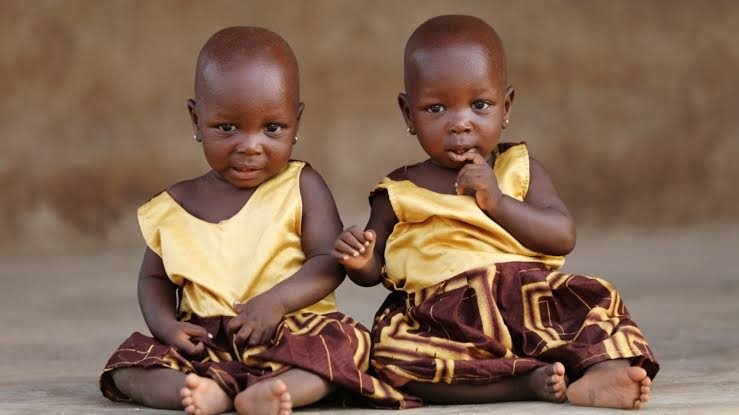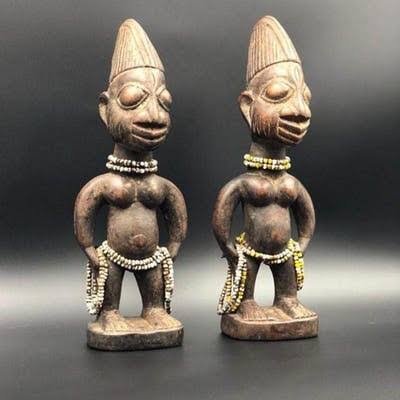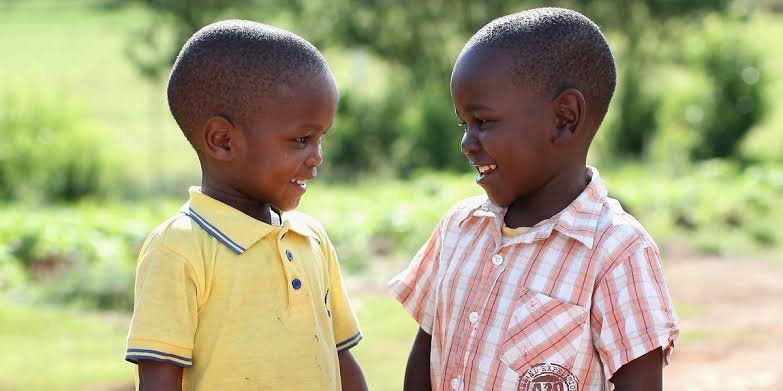Interesting facts about Igbo Ora, Nigeria’s melting pot of twin births

In this post, Platinum Times Nigeria explores the rich history of the Igbo Ora community in Oyo State, Nigeria.
Twins have a special place in Nigerian cultures today, many tribes including the Yoruba have a dark history with twins.
They often link twins with misfortune and thereby resulting to the killing of the twins and their mothers in particular.
This practice received heavy criticism from many Nigerians and foreigners as many people lent their voice to halt this inhumane practice.
A popular figure in Nigeria is the sacrificial effort of Scottish missionary, Mary Slessor who singlehandedly fought against and successfully stopped the killing of twins in Nigeria.
Since then, several communities in Nigeria has experienced the quantum birth of twin and multiple births within their environs, among these community is Igbo Ora, a small settlement in Oyo State, Nigeria
Emergence of Igbo Ora twin births
Igbo Ora is a small community in Ibarapa Central Local Government Area of Oyo State in Southwestern part of Nigeria.
It has gained international recognition for its unusually high rate of twins and triplets.

It is also known as the “twin capital of the world,” its twin birth rate is estimated to be four times higher than the global average.
This phenomenon is attributed to the consumption of a Yoruba traditional dish called “Ilasa” and often eaten with Amala (yam flour).
The phenomenon of twin births in Igbo Ora has sparked the interest of scientists and researchers from around the world as different myths surround the emergence of these twin births.
The high rate of twins in Igbo Ora community is attributed to the diet of the women in the community, which is rich in yams, a staple food that is believed to contain a natural hormone that may stimulate the ovaries and increase the likelihood of multiple ovulation and increased consumption of a local meal called Illasa, made from Okra leaves plant.
These twins are seen as special blessings and endowments from nature, they are also regarded as a source of good fortune and indication of better days.
Families with twins are held in high esteem in the community, and the twins are often given special names and treated with great respect as they are believed to be filled with fortunes.
Beliefs surrounding the twin births
The Yoruba people believe that twins share a combined soul, such that when one of the newborns die, the soul of the other is at risk because of the loss.
This is corrected by performing a special ritual and moulding of a small wooden statue as a symbolic replacement for the deceased twin.
If both twins die, two statues are carved and they are called “Ere Ibeji”, these statues are cared for by the parents of the deceased twins as a replacement of their children.

Owing to this occurrence, there are a large number of Ibeji statues in Yoruba land and this is attributed to the poor healthcare infrastructure and high rates of premature deliveries in the country.
Also, an annual “Igbo Ora Twins Festival” is being celebrated yearly to mark this unique aspect of culture.
The festival welcomed visitors from far and wide who come to witness the colorful parades, traditional dances, and other festivities that celebrate the birth of twins.
Naming pattern of Igbo Ora Twins
Twins born in this part of the world are named based on their time of arrival and position of birth.
They are given the name Taiwo and Kehinde.

Taiwo which literally means, “having the first taste of the world”, is a name reserved for the first twin who is believed to be the messenger of the eldest who will come after him.
Kehinde, the second twin is considered to be the eldest as Kehinde sent Taiwo out as a messenger to take a look at the world while he, Kehinde arrived later.
This naming system continues in the Yoruba land as twins are named Taiwo and Kehinde up till date.
Challenges encountered
Notwithstanding the fascinating twin births in Igbo Ora, the community faces several challenges associated with these high rate of multiple births, including lack of adequate and qualified healthcare services, educational needs, poor infrastructures, lack of electricity as well as financial needs.
Due to these setbacks, efforts are being made by the government to address these issues and to ensure that the unique cultural heritage of Igbo Ora’s twin-producing community is preserved for future generations.
Because of its reputation as a twin-producing community, Igbo Ora has gained recognition and a unique identity that makes it stand out from other Nigerian towns.
The town’s remarkable fertility rate and rich cultural heritage make it a destination of choice for tourism.
